I’m a huge fan of cyberpunk/futuristic settings that welcome all kinds of players and was super excited to try Metrorunner from Thunderworks Games, which successfully funded on Kickstarter earlier this year. As a denizen of Mirror City, the last refuge in a world overrun by corporate control, government corruption, and unquenchable greed, players must navigate the underworld and complete jobs as a runner.
Each move that you make influences the balance of power as you race to fulfill contracts offered by five city districts to get the most points possible! The design by Stephen Kerr, illustration by Ignacio Bazan Lazcano, Ariel Anabitarte, Nicolas Zacaria, and Matias Traberg, graphics by Kerr, Luis Francisco and Shy Lev0Ari, and narrative by Kerr and Johnson is incredible.
What’s in the box?
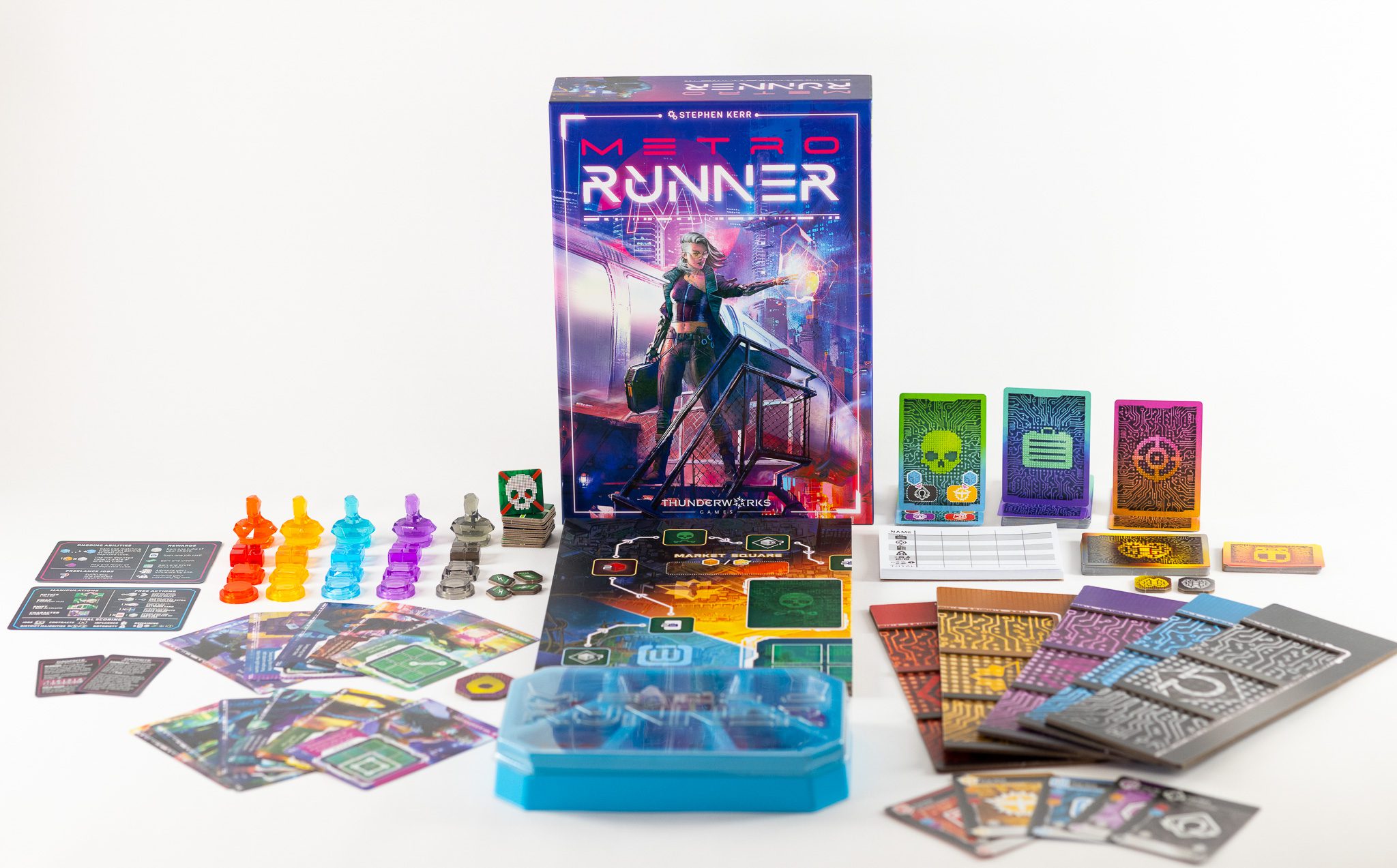
Metrorunner is gorgeous. We’ve established that if your game is pretty, I’m more likely to enjoy it, and that sure is the case here. The cyberpunk theme is in every aspect of the game even the figures and markers. There’s a two sided game board with different details for a 1-3 player game or with 4-5 players, 5 runner boards, figures, influence makers, and noteriety markers. There are also 100 resource cubes divided between the players, 20 credit tokens, 9 panop tiles, 10 brute force tokens, a starter player token, 10 double-sided upgrade tokens, and a scorepad.
There are also 11 character cards, 40 job cards, 30 network cards, 5 starting job cards (one per player), 4 contract cards, 10 contract tokens, 5 reference cards, and for the solo mode, 20 AI cards, and 2 rogue tokens. The runner miniatures and tray/token designs by Dan Cunningham are also super cool!
Having individual reference cards is super nice so that players don’t have to flip back and forth between pages of the rulebook to remember which icon means what (especially when learning the game). I especially loved the detail and diversity of the characters and their backstories. I’ve critiqued other games for having a theme but not following through by having details or stories, and I was really glad to see Metrorunner go all in on the story!
How’s it play?
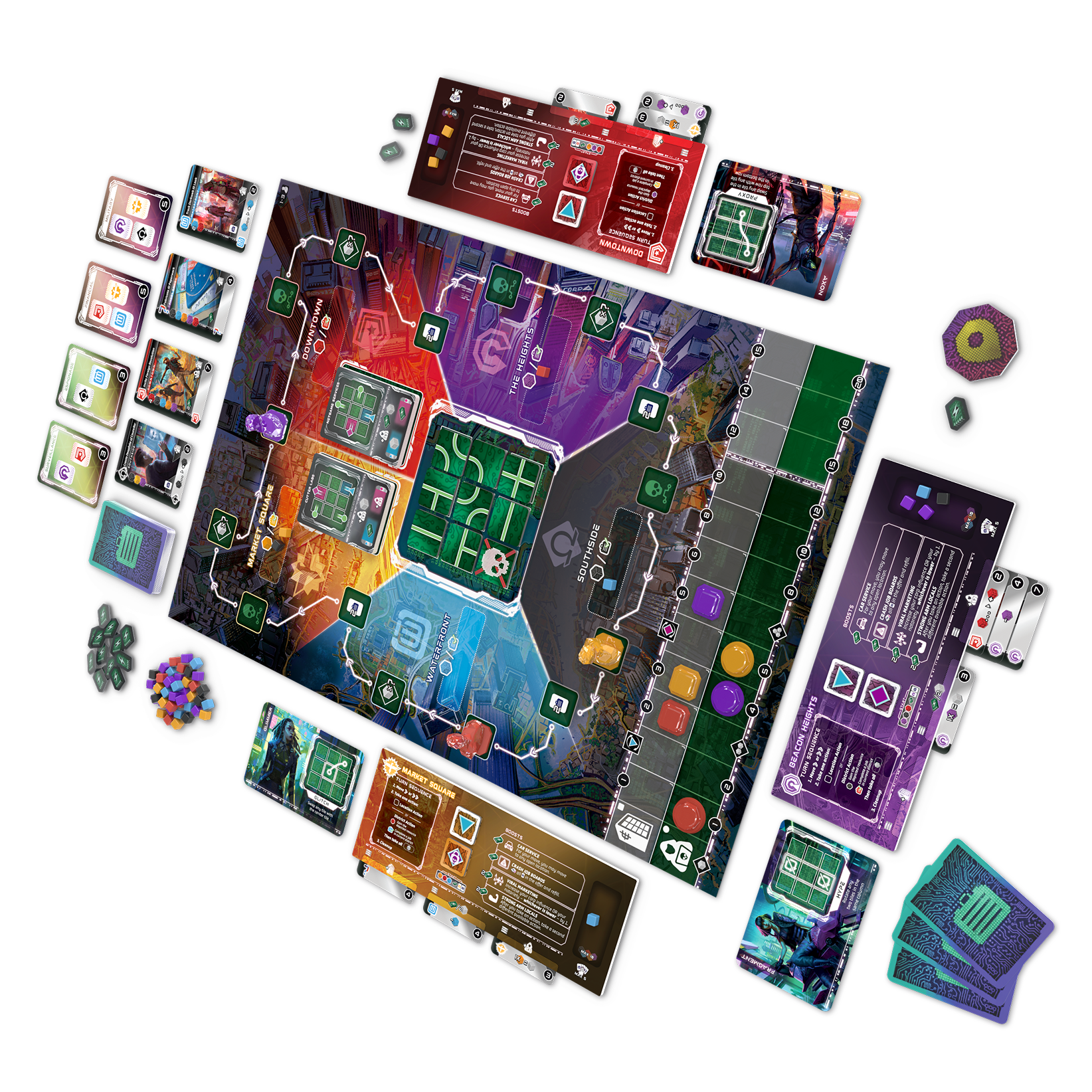
The play area is as shown above with all the various pieces and cards set around the board and with the player’s pieces next to or part of their game board. Each player gets a runner board, two upgrade tokens, a character card, starting cubes per their runner board, a starting job card matching their color, and one random job card from the job deck. What’s really nice is that there’s both a reference card for what players can do and the runner board provides information on the character’s home district, turn sequence summary, slots to hold hacks, cubes, and completed job slots and slot bonuses.
Players take turns doing three steps per turn. First, players must advance their runner figure at least one space clockwise on the game board but they cannot share space with an opponent’s figure. Then they take one action, and finish their turn by cleaning-up (discard cards if they’ve exceeded the 5 job card or 10 cube limit).
Two types of actions are possible in Metrorunner. Location actions, where a player can get jobs, contact agents, or attempt to hack the network. There are only two district actions, players either gain a cube matching the current district’s color, or they complete a job.

The player who can lure tourists into the data scam must pay four resource cubes to do so, and once they do, they’ll get a credit token, two resource cubes, move up on the track, and now have an ongoing ability. Completed jobs are placed under the runner board.
Players can also spend credits to purchase boosts which are special immediate abilities, that do not count as an action.
Scoring at the end combines the score for each completed job, contract, the amount based on the influence and notoriety tracks, having the district majority (most completed jobs matching their home district), and points for any leftover resources.
The game ends when a player completes their ninth job card, the job deck is empty, or an influence or notoriety marker cross the end game line. Once the game end is triggered, the current player finishes their turn, and play continues until all players have had an equal number of turns. Each player takes one final turn at that point, ending with the player to the right of the person who had the start player token.
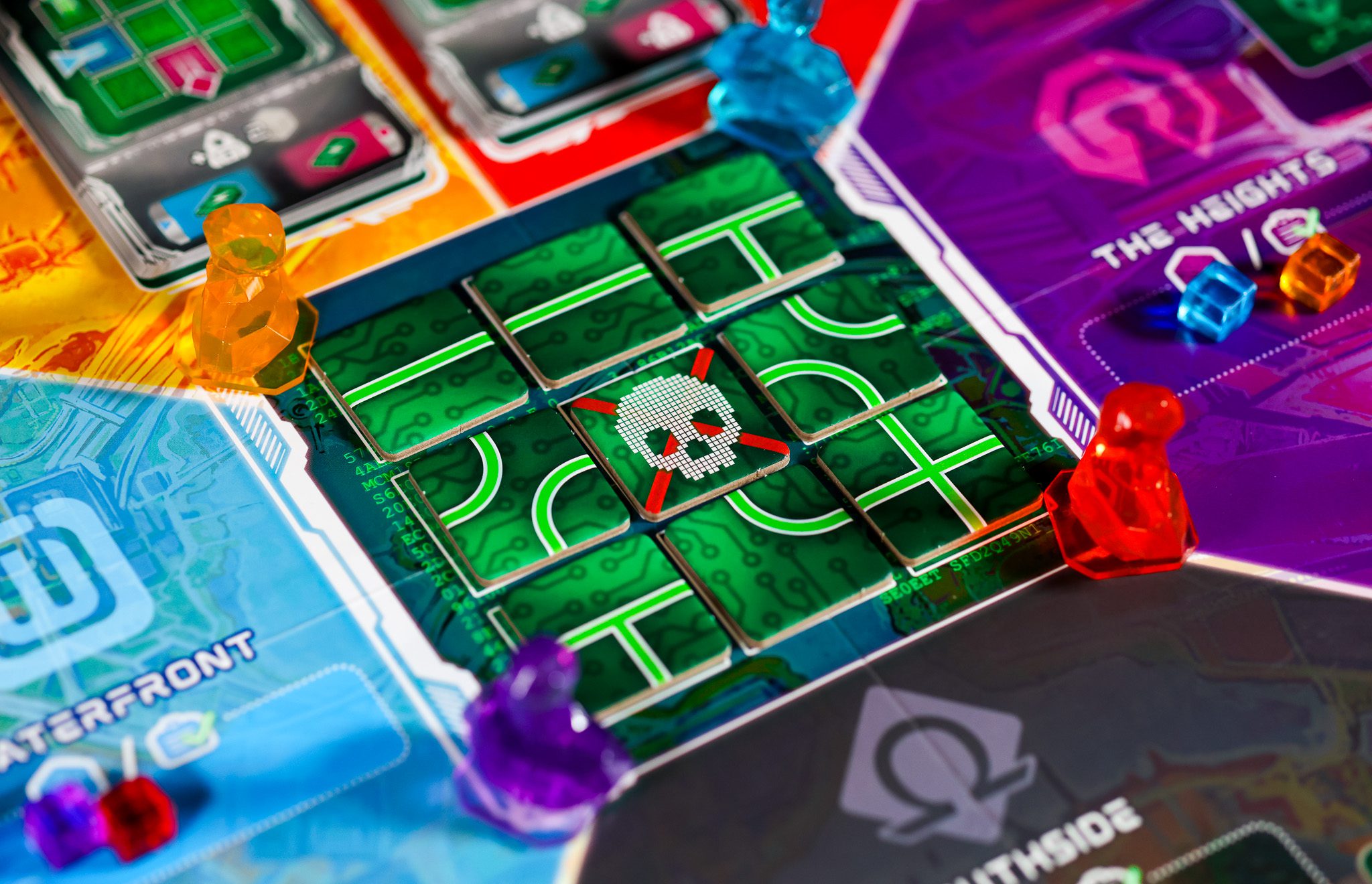
One of the coolest and most unique parts of the game is the ability for players to hack the network. Each network card has two core and two bonus hack nodes. When hacking, the player manipulates the PANOP tiles to create a single continuous path to connect the nodes. The first two manipulations are free, but if they want to perform more manipulations, they must return one cube to the supply per manipulation.
The Kickstarter had an addon for metal tiles, which is super cool, and I would have totally ordered myself if I had known about it! Fortunately they’re available for purchase too.
There’s also a drop site expansion available now for an added $7 that provides more scoring options and free actions.
The verdict?
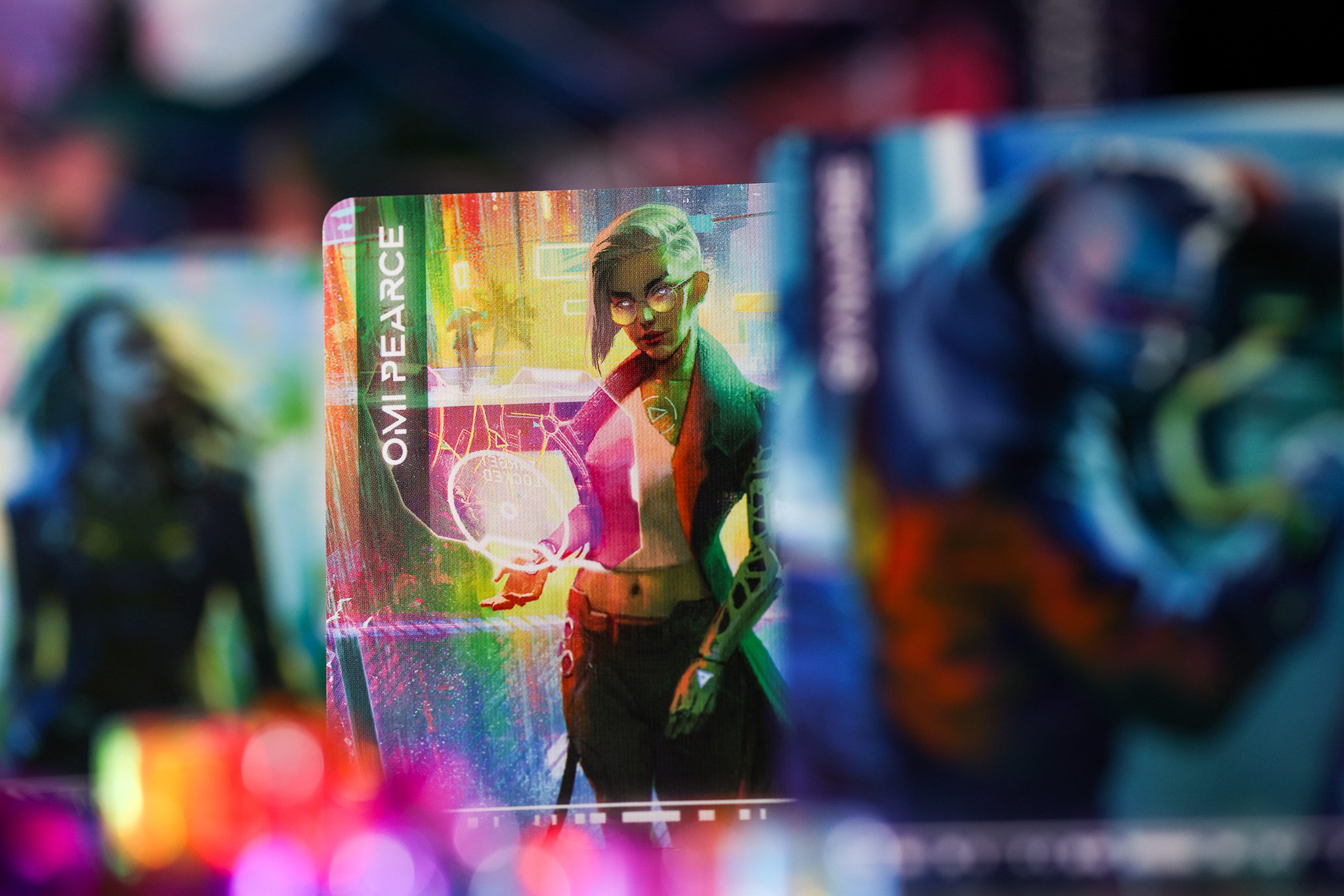
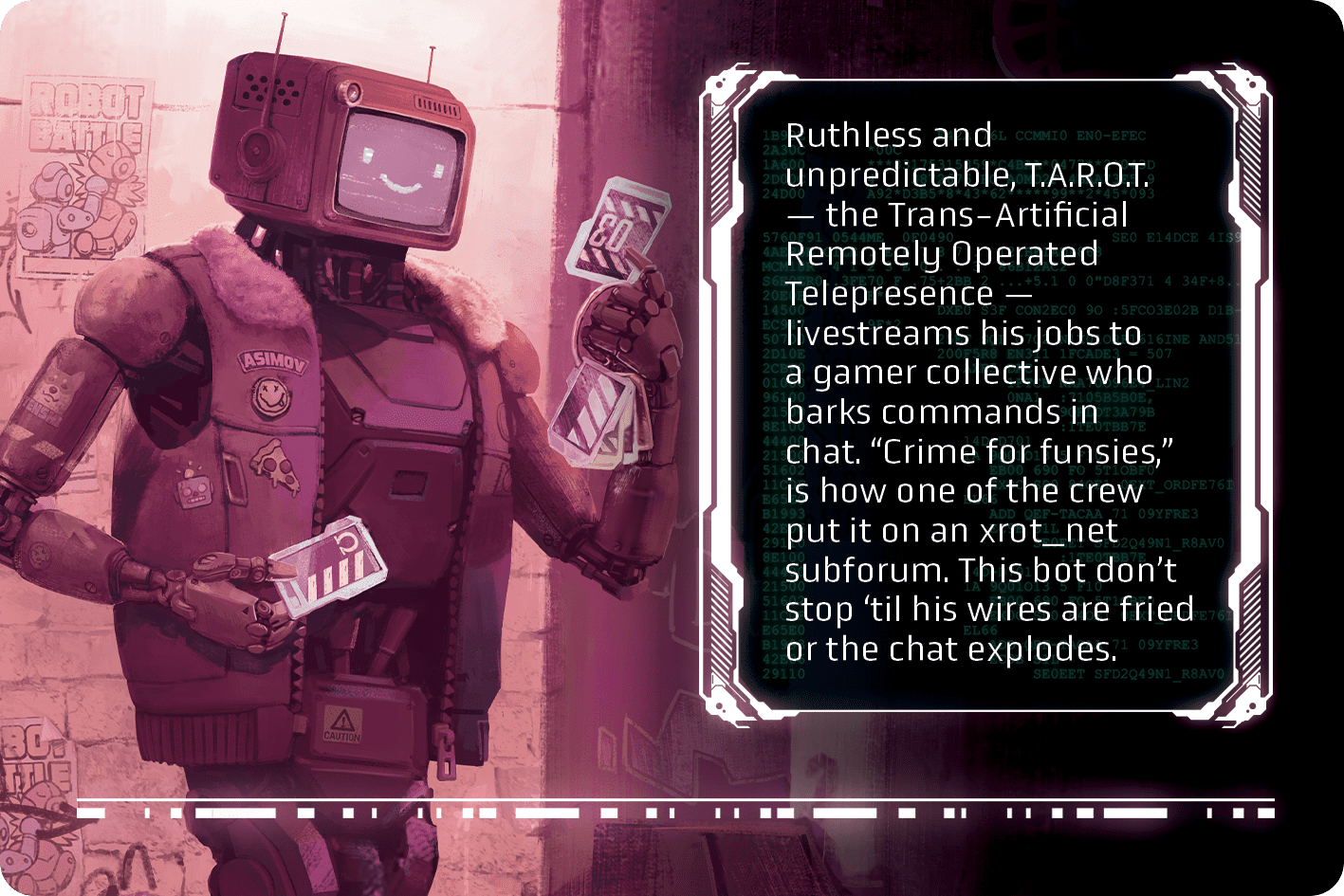
Metrorunner is a solid themed worker placement game, and has honestly become one of my top five games. My friends and I had so much fun learning the game and playing through it. “Running” around the districts via the rondel mechanic challenges players to strategize how they want to move and when to use boosts, and the resources being placed in districts as players hack the network means that there’s always resources to claim.
You can actually accrue a lot of resource cubes but then must strategize which colored cubes you’ll want to keep since you can’t have more than ten. (Also the cubes are just super fun and remind me of jello candy).
The hacking “mini-game” aspect of Metrorunner is also really entertaining, but can get frustrating if you can’t figure out how to use two manipulations to get the nodes you want. Finally, (though certainly I could just keep going on every aspect of the game), the player boards having the notches underneath to hold the cards is a really nice touch and I hope more player boards are manufactured this way in the future!
You can grab a copy of Metrorunner from Thunderworks Games directly and at your FLGS for $59.99, which I genuinely believe is a solid price for a game of this quality and replayabilty.
Images and review copy courtesy of Thunderworks Games
Have strong thoughts about this piece you need to share? Or maybe there’s something else on your mind you’re wanting to talk about with fellow Fandomentals? Head on over to our Community server to join in the conversation!

